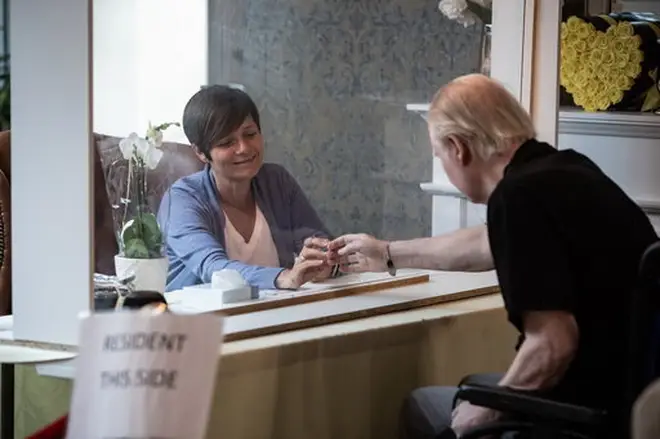
Henry Riley 7pm - 10pm
26 March 2021, 07:57 | Updated: 26 March 2021, 08:06

One of the UK's leading Covid scientists has suggested there is "no real science" behind stopping vaccinated people from seeing each other indoors.
Professor Tim Spector, who leads the Zoe Covid Symptom Tracker app study run by King's College London, said that consideration should now be given to people's mental health and the needs of the elderly.
He has also suggested there is no scientific reason to stop vaccinated people from travelling - despite the emergence of a third wave of Covid-19 in mainland Europe.
"I think we're actually in a much better place than many people are telling us and I, for one, I'm not worried too much about what's happening abroad," he said.
READ MORE: Quarter of people over 80 in England now fully vaccinated against Covid-19
READ MORE: Rishi Sunak urges workers to get back into the office after lockdown
"I think we need to start talking about when people who have been vaccinated can start seeing other vaccinated people.
"And there's no real science now stopping, for example, me seeing my vaccinated mother in a care home or, you know, wherever they live.
"So I think we need to start moving to this next area and realise that our plan is working, and that we were doing well."

Vaccine passports to travel abroad are 'inevitable', says professor
Asked if this would mean bringing forward such meetings ahead of Prime Minister Boris Johnson's 'roadmap out of lockdown', Prof Spector said: "If we're being led by the science, that's what we'd be led by.
"But we're not, we're being led by politics, and I can see the arguments for not splitting the country into two.
"At the same time, given the mental state of many people, and the needs of elderly people, I think that ought to be equally considered."
He explained the best scenario would be where both people have had two doses of the vaccine instead of one.
READ MORE: Two arrested over deadly coronavirus outbreak at Devon care home
EXPLAINED: Can we meet in gardens from 29th March?
"But the dangers after one dose are certainly that you're not going to get anything that's going to put you into hospital," Prof Spector added.
"You might get mild disease possibly in a really rare occurrence, but you know these are still going to be very rare.
"I think ideally, yes, wait for both vaccines for both people, but I think once you've gone over a month after your first one, most people are going to be safe to see people who are free of Covid and themselves vaccinated."
He said, according to the latest data in his study, there are currently 4,500 to 5,000 new Covid-19 cases a day in the UK, with a prevalence of about 73,000 people infected.
He explained the figures had not changed much in the last 10 days but that he hoped this plateau would start to drop off again in the next week.

MPs vote to extend lockdown powers
His comments follow a vote by MPs yesterday to extend the Government's lockdown powers for another six months.
The majority of MPs voted in favour of the extension, passing by 484 to 76 - a 408 majority - but has left a small group of backbenchers furious.
Sir Graham Brady, MP for Altrincham & Sale West, said the UK risks "normalising extreme policy" by renewing the Coronavirus Act.
He wrote: "Today I voted against the extension of emergency powers under the Coronavirus Act until October.
"A year on we now risk normalising extreme policy responses and an attitude that our fundamental liberties exist for authorities to either grant or withhold."
READ MORE: Tory rebels condemn lockdown law extension that risks 'normalising extreme policy'
Those to oppose the measures included former Labour leader Jeremy Corbyn, who said the Tories "can't be trusted with our civil liberties" criticised the Government for "still not taking the action needed for public health, jobs and livelihoods".
But ministers, supported by the Opposition, argue the extension of restrictions is a necessary part of Boris Johnson's roadmap out of lockdown, to ensure the number of new infections continues to decline and remain stable.
The PM said he wants the limits to be removed "once and for all" by the summer and avoid once again plunging the country back into social distancing measures.